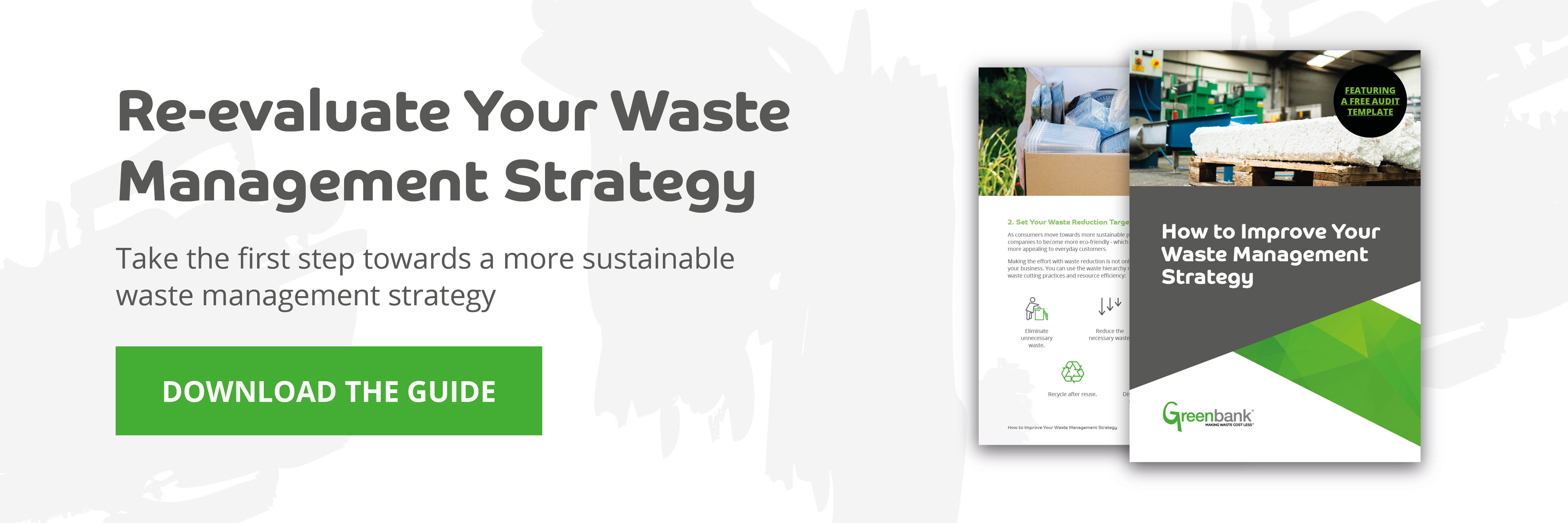Offensive waste is ‘non-clinical waste that’s non-infectious and does not contain pharmaceutical or chemical substances, but may be unpleasant to anyone who comes into contact with it.’ Because of this, it needs a little more attention, care and preparation than afforded to more general waste types, such as cardboard and plastic.
Whether for environmental, safety or legislative reasons, all businesses with offensive waste must have a waste policy in place – here’s why.
- Why Create a Disposal of Offensive Waste Policy?
- Classifying Waste
- Separating Offensive Waste
- Using a Waste Carrier
- Working Within the Duty of Care
Why Create a Disposal of Offensive Waste Policy?
Government legislation takes the treatment and disposal of offensive waste very seriously and failure to comply could result in prosecution. Similarly, there’s also the environmental and safety aspect that businesses need to consider. Not only do businesses want to protect their employees on-site, it’s also important to ensure there’s a reduction in the risk to local and national wildlife and biodiversity.
In this blog, we will highlight the common themes and requirements that all businesses have to think about and satisfy. Here are the top inclusions for creating a disposal of offensive waste policy.
- Classifying Waste
- Separating Hazardous Waste
- Agency Notification
- Using a Waste Carrier
Classifying Waste
Each disposal policy needs to ensure that its first step is classification. All waste must be classified and checked to determine whether it is offensive waste or not. This means classifying it and then detailing the contents of the waste, with a description that includes:
- Whether the waste is offensive
- The waste classification code.
- The type of premises on which it was produced.
- The name of the substance that makes up the waste.
- How the waste was produced.
You must keep a copy of the waste description on your premises for three years. If the waste is classified as offensive, you are able to compact it as long as you have the relevant environmental permits or waste exemptions.
If compaction is undertaken, a COSHH assessment should be carried out. This is to determine whether there will be a risk of exposure to chemicals such as bioaerosols. This may result in specific safety procedures being put in place to both monitor risk and minimise it.
Separating Offensive Waste
‘You must segregate healthcare offensive waste from both clinical and mixed municipal wastes.’
All businesses have a duty to separate any offensive waste from any other waste, so this needs to be a foundational part of your policy. While offensive waste regulations are not as serious as for hazardous waste, you can use insight from the 2005 hazardous waste regulations to inform your separation policy. It states:
The holder must make arrangements for separation of the waste to be carried out in accordance with a waste permit or registered exemption as soon as reasonably practicable.
Offensive waste must be separated and stored in what are known as ‘tiger stripe bags’, as they’re bright yellow in colour and have a thick black line running down them. These bags need to be of high quality in order not to break or tear.
Using a Waste Carrier
Waste carriers need to be properly vetted before they’re utilised. It needs to be shown that the waste carrier can accurately handle the offensive waste, in line with what that waste type requires.
Also, they need to be actively registered as a waste carrier and their sites must have the appropriate environmental permits.
It’s worth remembering that you are still responsible for your waste even after it has left your premises.
Work Within the Duty of Care
Within a disposal of offensive waste policy, every business needs to satisfy the regulations set out in the Waste Duty of Care Code of Practice, a mix of legislation that makes ‘provision for the safe management of waste to protect human health and the environment.’
These requirements apply if ‘you import, produce, carry, keep, treat, dispose of or, as a dealer or broker, have control of certain waste in England or Wales.’
Failure to comply with the waste duty of care is an offence. The duty itself applies to anything known as controlled waste.
Each of these requirements will apply to any and all businesses that produce or deal with waste. Inducting these obligations into your disposal of offensive waste policy will make the entire process much easier, safer and more compliant.
However, offensive waste is only one type of waste. There are others that require bespoke waste management strategies to deal with them – and no waste management policy is alike.
To discover how you can create bespoke waste management strategies or improve the ones you already have, explore our useful guide.
How to Improve Your Waste Management Strategy
All facilities managers want to reduce the business risk of waste while upping compliance and sticking to budgets. It’s a complex balancing act that requires optimising a waste management strategy in order to keep all the plates spinning.
To see how this problem is solved, just read our guide. We provide answers on compliance, waste management machinery, training, cost-efficient practices and waste audits. Just click the link below for your free copy.

Recommended Machinery:
Recommended Guides:




